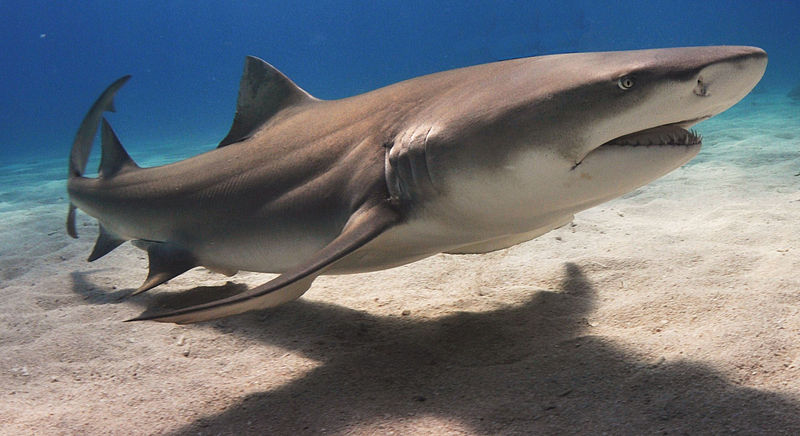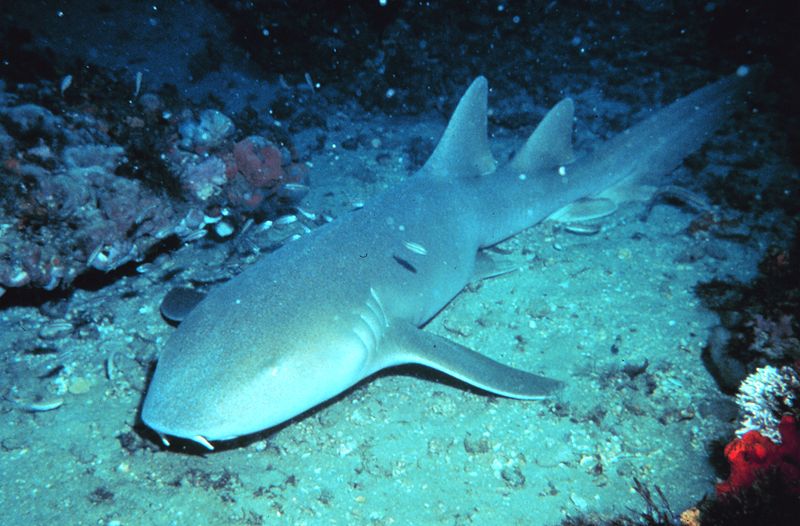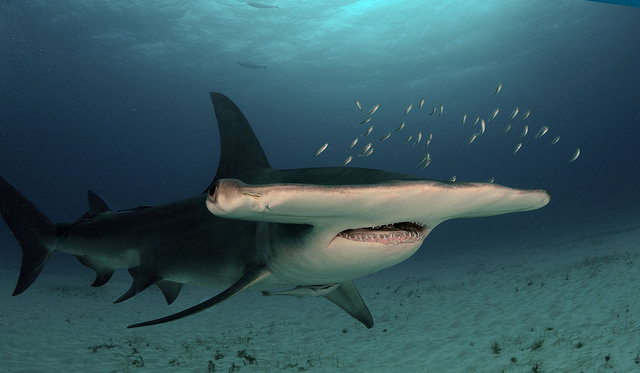The British Virgin Islands is a tropical British overseas territory, a part of the Virgin Islands archipelago.
The islands have white sandy beaches and rugged landscapes, which are surrounded by the Caribbean Sea and the North Atlantic Ocean.
Residents and visitors can experience all sorts of outdoor activities, including swimming, snorkeling, scuba diving, paddle boarding, and hiking.
There are four main islands and more than 50 smaller islands and cays in close proximity. The largest main island, Tortola, is the most populated. Virgin Gorda, Anegada, and Jost Van Dyke are the other three main islands.
An abundance of wildlife is protected in over 20 national parks that are monitored by the British Virgin Islands (BVI) National Parks Trust. One of the most famous dive sites in the British Virgin Islands is in the Rhone Marine Park. It is the only marine park in the BVI and has an abundance of coral and marine life.
But if you’re considering a trip to the BVI to enjoy all the area has to offer, you might have one big question:
Do the British Virgin Islands have sharks?

Among its rich array of marine life, the British Virgin Islands is home to several shark species. Some of the most common types of sharks that reside in the British Virgin Islands include:
- Lemon shark
- Nurse shark
- Great hammerhead shark
- Caribbean reef shark
- Blacktip shark
- Oceanic whitetip shark
- Tiger shark
- Silky shark
However, shark attacks in the British Virgin Islands are incredibly rare and shouldn’t be of concern to most visitors and residents.
Let’s take a closer look at the types of sharks that live near the British Virgin Islands, photos, shark attack history and statistics, and more.
Types of Sharks in the British Virgin Islands
The British Virgin Islands attracts sharks because it offers many species an ideal habitat.
Every island in this territory is surrounded by coral reefs and there are numerous bays, which are preferred by inshore sharks.
Several of these British Virgin Islands sharks are fairly large, which can make them a threat to humans. However, the British Virgin Islands has an almost nonexistent shark attack history and most of these species are generally nonaggressive.
Let’s dive into some neat facts about each of these sharks, and the likelihood of you encountering one while on vacation in the BVI.
Lemon Shark

Named for their yellow-hued skin, lemon sharks reside in subtropical and tropical inshore waters of the Pacific and Atlantic oceans.
They are most active at night and spend much of their day resting on the seabed, blending in with sandy-bottomed shores.
The lemon sharks’ favorite spots include mangrove forests and coral keys.
Mangrove forests are abundant on the island of Virgin Gorda, and coral reefs surround all of the BVI. This provides the lemon shark with its preferred habitat.
Adults may grow to be up to 10 feet long and can weigh as much as 550 pounds. Despite their size, lemon sharks are not considered a big threat to humans. Attacks are very rare, and these sharks are generally not aggressive towards divers in the vicinity.
Nurse Shark

Nurse sharks are common in the eastern and western portions of the Atlantic and the Caribbean Sea. These sharks are nocturnal, bottom-dwelling creatures that aren’t a common daytime sight. They spend most of their time resting on sandy bottoms in shallow waters during the day, or in crevices or caves.
These are fairly common sharks in the waters of the North Atlantic around Florida and the West Indies, which includes the Virgin Islands.
They are not considered very aggressive and there are few attacks on record that are mostly associated with shark-feeding tourist attractions. They do have a powerful bite, but unprovoked attacks are rare.
Great Hammerhead Shark

Great hammerheads are the largest of the hammerhead shark species.
The longest hammerhead ever recorded was 20 feet. Most adult individuals, however, grow to be about 10 to 15 feet in length.
Because of their large size, they are considered a threat despite their typical unaggressive behavior towards humans.
These sharks are highly migratory and will reside in deep offshore waters and get closer inshore as well. Their preferred habitat is near continental shelves, islands, lagoons, and coral atolls.
These hammerheads may travel to the British Virgin Islands because of their attraction to islands and coral reef habitats.
Caribbean Reef Shark

As the name suggests, Caribbean reef sharks are found in shallow waters throughout the Caribbean Sea.
They also frequent the Gulf of Mexico and the Florida Keys, but are very rare any farther north.
Caribbean reef sharks are attracted to the British Virgin Islands because they prefer coral reef habitats and a diet of bony reef fish. These bottom dwellers are often spotted motionless on the seafloor or in coral caves. Females may enter shallow bays or lagoons to give birth to pups.
Caribbean sharks are considered an apex predator and can grow to be up to 10 feet long.
Although not considered dangerous, they can become aggressive if they feel threatened. To signal an attack, these sharks will swing their heads farther out than normal, make sharp movements, or arch their backs.
Blacktip Shark

Blacktip sharks reside all throughout the Caribbean Sea, West Indies, Gulf of Mexico, and the North Pacific and Atlantic. They like tropical and subtropical waters near coasts, continental shelves, bays, reefs, and islands.
A large population of these sharks live in the Caribbean, so they are fairly common near the British Virgin Islands. They love to eat small schooling fish found in coral reefs. Blacktips have been observed jumping out of the water and spinning in the air when feeding, similar to spinner sharks.
Blacktip sharks are one of the more aggressive shark species in British Virgin Island waters. They have been responsible for 41 non-fatal unprovoked attacks since the attacks have been recorded in the International Shark Attack File.
Although it may sound like a lot, this is a relatively low number considering it’s over a span of almost 500 years.
Oceanic Whitetip Shark

Found worldwide in tropical and subtropical waters, the oceanic whitetip shark is a large offshore species. They generally swim closer to the surface, but they prefer to reside in deeper waters and don’t appear inshore often.
These sharks can grow up to 13 feet and the maximum weight recorded is about 370 pounds. Whitetip sharks are a dominant species and can overpower other sharks that interrupt their feeding time.
Oceanic whitetip sharks are considered potentially dangerous to humans. According to the International Shark Attack File, they are responsible for 12 attacks in modern history.
Seeing this shark, however, may become rare because they are critically endangered and their population is decreasing.
Tiger Shark

Tiger sharks can be found in the British Virgin Islands because they reside in temperate and tropical waters all around the world. They may migrate to cooler waters in the warmer months and revisit the tropics in colder months.
These sharks like to frequent shallow waters and often appear at the surface around island chains and coral atolls. This makes the British Virgin Islands an ideal habitat for tiger sharks.
This slow-moving shark can reach lengths up to 18 feet long and weigh as much as 1,400 pounds. Tiger sharks will also eat pretty much anything they can find.
The tiger shark holds the second highest record for shark attack incidents in modern history.
The International Shark Attack File has recorded 138 unprovoked attacks, with 36 incidents being fatal. They are very curious creatures and extreme caution should be taken if encountered.
Silky Shark

The silky shark is widely distributed throughout tropical regions. This species is highly migratory and can travel long distances in deeper waters. They generally stay about 650 feet below the surface, but have been known to visit shallower waters around 60 feet.
The likelihood of encountering a silky shark while enjoying the beach on the British Virgin Islands is pretty rare. It would be more likely to see one if you were scuba diving in deeper waters.
Silky sharks are active and fast swimmers, and can also be aggressive. This makes the silky shark potentially dangerous to humans.
Shark Attack History at the British Virgin Islands
Shark attacks in the British Virgin Islands are extremely rare. In fact, attacks are so rare that its shark incident history is almost nonexistent.
There have been shark attack incidents reported in surrounding areas, such as the US Virgin Islands and other Caribbean islands.
Only one shark attack has been reported in the British Virgin Islands in the last 70 years.
A man from Fort Meyers, Florida was vacationing with family in the British Virgin Islands in December 2007. He was scuba diving in Green Bay, located on the island of Jost Van Dyke, when he went missing.
When the man’s body was recovered, it had shark bites on it. However, it was confirmed that the cause of death was drowning and the shark bites were post-mortem.
Since the attack did not occur before he drowned, the Shark Research Institute shark attack file considers it an invalid incident.
The small population of about 30,000 residents amongst all of the inhabited British Virgin Islands may contribute to the lack of shark attack incidents. The majority of BVI residents also only reside on the largest main island of Tortola.
British Virgin Island sharks also don’t encounter nearly as many tourists as other tropical islands and regions around the world. These islands see about 83,000 tourists annually, which is relatively low compared to other tourist hotspots that bring in millions of visitors.
Another factor that contributes to the lack of shark attacks is the behavior of the sharks that are most common in British Virgin Island waters.
Several BVI shark species tend to be relatively harmless and aren’t considered a threat.
There are a handful of BVI sharks that can be dangerous if encountered because of their size, but most have a non-aggressive temperament when left alone or avoided.
Wrapping Up
The British Virgin Islands are a great place to enjoy white sandy beaches, tropical scenery, nature, and marine life.
Just be aware, several shark species reside in or travel through the British Virgin Island waters.
Most British Virgin Islands shark species are not considered a threat based upon their behavior. Some larger and potentially dangerous sharks do live in the area, but shark attacks in the BVI are incredibly rare.
There is a possibility that you may see sharks while visiting the British Virgin Islands, but the odds of an unprovoked attack occurring is extremely low. Swim in groups, avoid swimming at night, and follow all posted advisories — and your trip to the British Virgin Islands will surely be safe and enjoyable!
For more guides, check out:
- Sharks in St. Pete Beach
- Sharks in Saint Lucia
- Sharks in Waikiki
- Sharks in Tulum, Mexico
- Sharks in Aruba
Hope this helps!